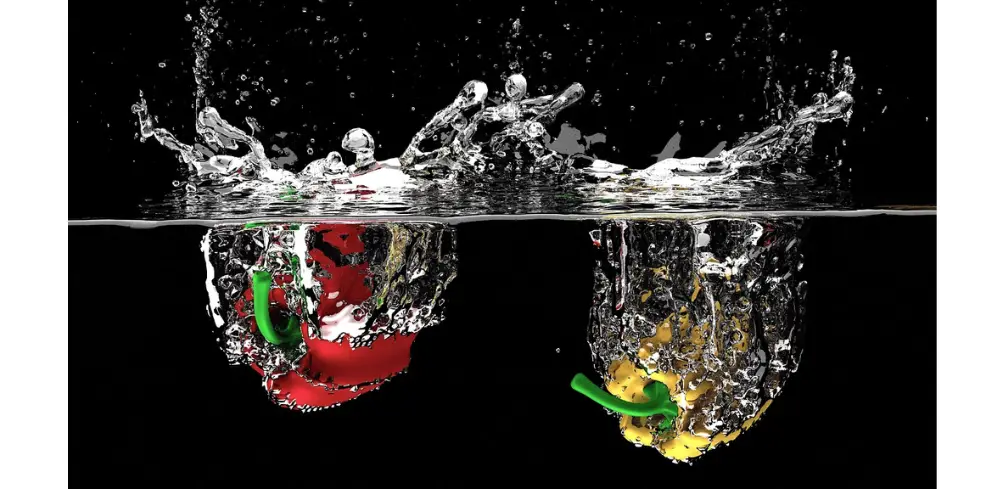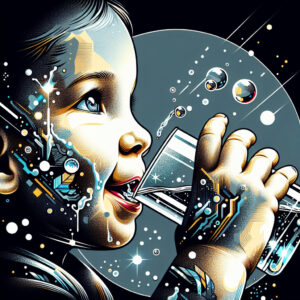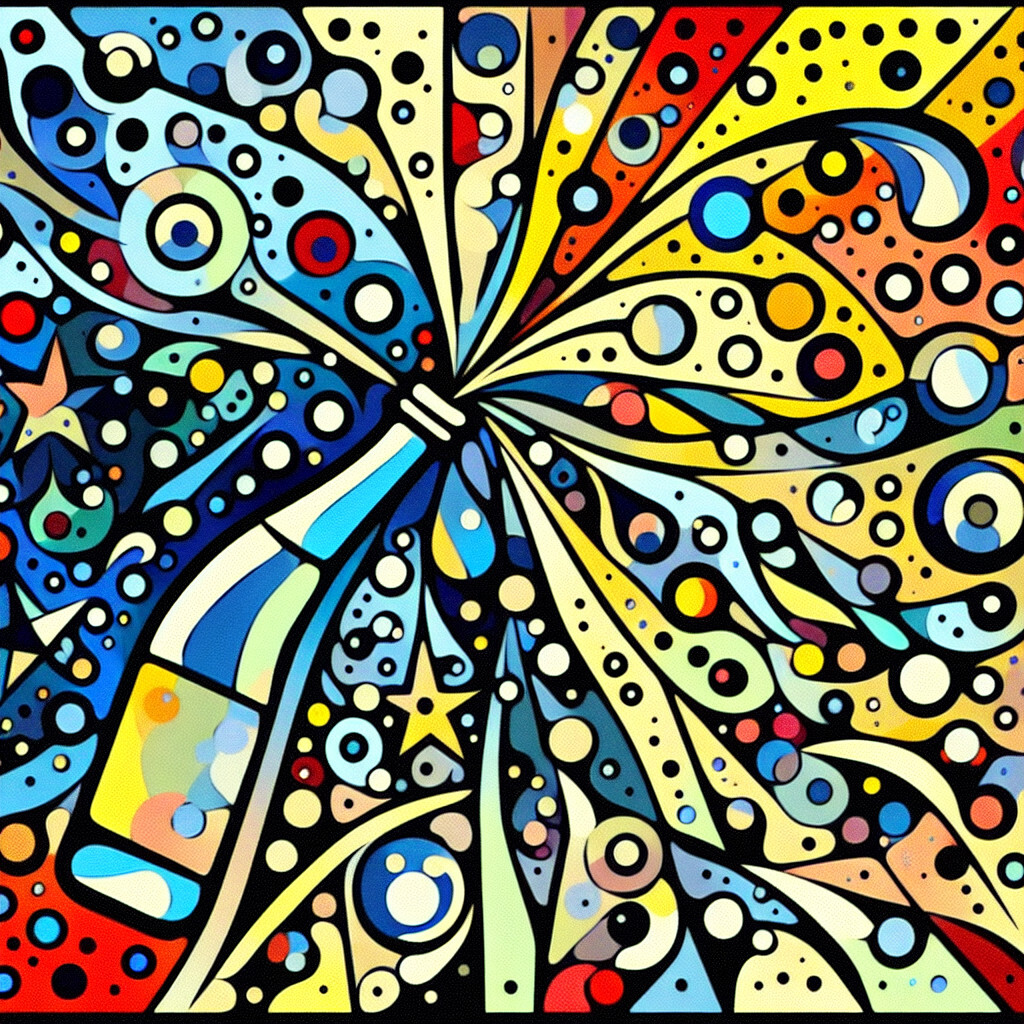Amazon Affiliate Disclaimer
As an affiliate, we earn from qualifying purchases. We get commissions for purchases made through links in this post.
Sparkling water, also known as carbonated water or seltzer water, is infused with carbon dioxide gas under pressure. It is often a low-calorie alternative to sugary drinks, such as soda or fruit juices. But is sparkling water healthy?
There are a few potential benefits to consider. First and foremost, sparkling water can help keep you hydrated, as it contains the same essential electrolytes as plain water. It can also be a helpful tool for weight management, as it is typically low in calories and sugar. Some studies have suggested that sparkling water can help reduce appetite and increase feelings of fullness, which may benefit those looking to lose weight.
However, there are also some potential drawbacks to consider. One concern is the carbonation in sparkling water, which can cause bloating and discomfort in some people. Additionally, some types of sparkling water may contain artificial sweeteners or flavors, which can adversely affect health depending on the type and amount consumed. The environmental impact of sparkling water production and transportation should also be considered, as it requires resources and energy and may contribute to waste from single-use plastic bottles.
The health effects of sparkling water are likely to vary depending on an individual’s overall diet and lifestyle. While it can be a helpful tool for hydration and weight management, it is not a replacement for plain water and should not be consumed in excess. It is also important to choose brands of sparkling water that are free of artificial additives and sweeteners and to consider the environmental impact of your choices.
The nutritional content of sparkling water
Sparkling water, also known as carbonated water or seltzer water, is infused with carbon dioxide gas under pressure. It is often a low-calorie alternative to sugary drinks, such as soda or fruit juices. But what exactly is in sparkling water, and how does it compare nutritionally to other beverages?
First, it’s important to note that the nutritional content of sparkling water can vary depending on the brand and type. Some brands offer flavored sparkling water containing added sugars or artificial sweeteners. Other types of sparkling water may be enriched with minerals or electrolytes.
A typical 12-ounce serving of plain sparkling water contains zero calories, carbohydrates, or sugar. It may also have trace amounts of minerals, such as calcium, magnesium, and potassium, depending on the water’s source and the carbonation method. Overall, however, most types of sparkling water are relatively low in calories and nutrients.
In comparison, sugary drinks such as soda and fruit juices are significantly higher in calories and sugar. For example, a 12-ounce serving of regular soda can contain up to 150 calories and 39 grams of sugar. Fruit juices may also be high in calories and sugar, depending on the type and serving size.
It’s important to note, however, that the nutritional content of sparkling water should not be the only factor to consider when making choices about what to drink. Other factors, such as the environmental impact of production and transportation, and the potential health effects of artificial sweeteners and additives, should also be considered.
While sparkling water is generally low in calories and nutrients, it is not a nutrient-dense beverage. It can be a valuable tool for hydration and weight management, but it is not a replacement for plain water and should not be consumed in excess. It is also important to choose brands of sparkling water that are free of artificial additives and sweeteners and to consider the environmental impact of your choices.
The potential health benefits of sparkling water
Sparkling water, also known as carbonated water or seltzer water, is infused with carbon dioxide gas under pressure. It is often a low-calorie alternative to sugary drinks, such as soda or fruit juices. But is sparkling water healthy? While sparkling water’s potential health benefits depend on various factors, there are a few key points to consider.
One potential benefit of sparkling water is its hydrating properties. Like plain water, sparkling water can help to keep you hydrated by replenishing the fluids and electrolytes lost through sweat and other bodily functions. Some types of sparkling water may also be enriched with minerals, such as calcium, magnesium, and potassium, which can help to support overall health and well-being.
Another potential benefit of sparkling water is its low calorie and sugar content. A typical 12-ounce serving of plain sparkling water contains zero calories, carbohydrates, or sugar, making it a valuable tool for weight management. Some studies have even suggested that sparkling water can help reduce appetite and increase feelings of fullness, which may benefit those looking to lose weight.
It’s important to note that the benefits of sparkling water may vary depending on the type and brand. Some types of sparkling water may contain artificial sweeteners or flavors, which can negatively affect health depending on the type and amount consumed. The environmental impact of sparkling water production and transportation should also be considered, as it requires resources and energy and may contribute to waste from single-use plastic bottles.
While sparkling water can be a valuable tool for hydration and weight management, it is not a replacement for plain water and should not be consumed in excess. It is also important to choose brands of sparkling water that are free of artificial additives and sweeteners and to consider the environmental impact of your choices.
The potential health risks of sparkling water
Sparkling water, also known as carbonated water or seltzer water, is infused with carbon dioxide gas under pressure. It is often a low-calorie alternative to sugary drinks, such as soda or fruit juices. But are there any potential health risks associated with sparkling water? While sparkling water’s dangers depend on various factors, there are a few key points to consider.
One potential risk of sparkling water is its carbonation. Carbonation infuses moisture with carbon dioxide gas under pressure, giving sparkling water its characteristic bubbly texture. While carbonation is not necessarily harmful, it can cause bloating and discomfort in some people. This is because the carbon dioxide gas can create pressure in the stomach, leading to feelings of fullness and pain.
Another potential risk of sparkling water is its acidity. Most types of sparkling water have a slightly acidic pH due to the carbon dioxide gas, which can be harmful to tooth enamel over time. The acid can erode tooth enamel, leading to sensitivity and decay. Some studies have suggested that the acidity of sparkling water may be harmful to tooth enamel, especially when consumed in large quantities or over long periods.
It’s important to note that the risks of sparkling water may vary depending on the type and brand. Some types of sparkling water may contain artificial sweeteners or flavors, which can negatively affect health depending on the type and amount consumed. The environmental impact of sparkling water production and transportation should also be considered, as it requires resources and energy and may contribute to waste from single-use plastic bottles.
While sparkling water can be a valuable tool for hydration and weight management, it is not a replacement for plain water and should not be consumed in excess. It is also important to choose brands of sparkling water that are free of artificial additives and sweeteners and to consider the environmental impact of your choices.
Conclusion
Sparkling water, also known as carbonated water or seltzer water, is infused with carbon dioxide gas under pressure. It is often a low-calorie alternative to sugary drinks, such as soda or fruit juices. While there are some potential benefits to consider, such as its hydrating properties and low calorie and sugar content, there are also some potential drawbacks and risks. Carbonation can cause bloating and discomfort, and sparkling water may have a slightly acidic pH that can harm tooth enamel over time. Some types may also contain artificial sweeteners or flavors, which can negatively affect health. It is important to choose brands without these additives and to consider the environmental impact of production and transportation. Sparkling water can be a helpful tool in moderation, but it is not a replacement for plain water and should not be consumed in excess.
Read also:
- baby on sparkling water
- baby loves sparkling water

- sparkling water in babies

- giving baby sparkling water

- sparkling water for child

- does sparkling water affect breastfed baby

Please be careful and use at your own risk
None of the authors, contributors, administrators, or anyone else connected with Water Exotic, in any way whatsoever, can be responsible for your use of the information contained in or linked from these web pages.









